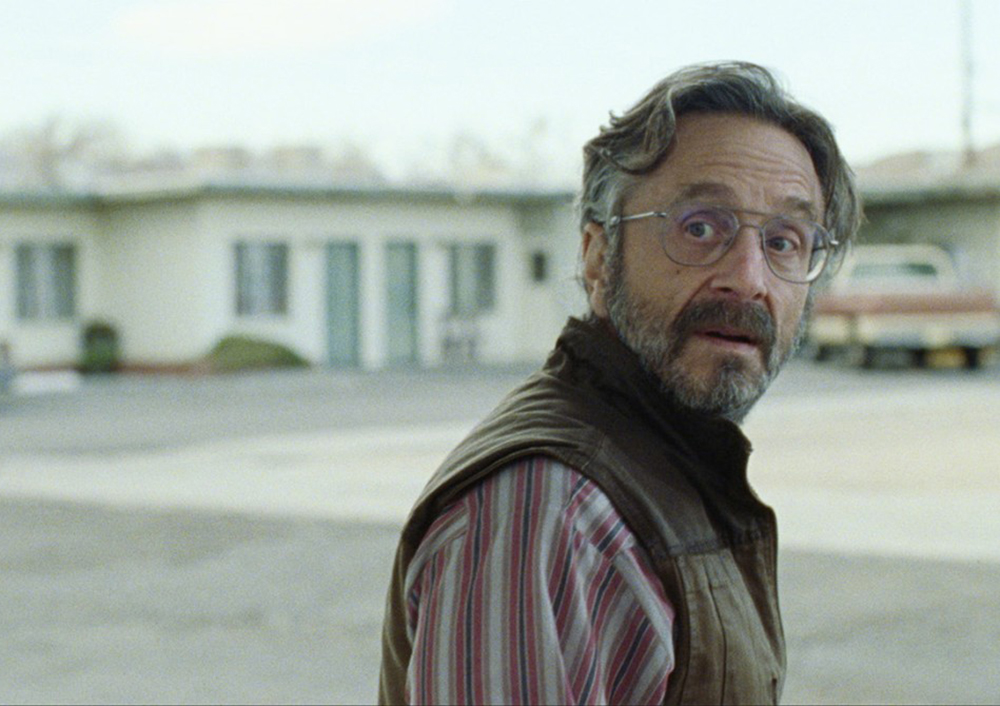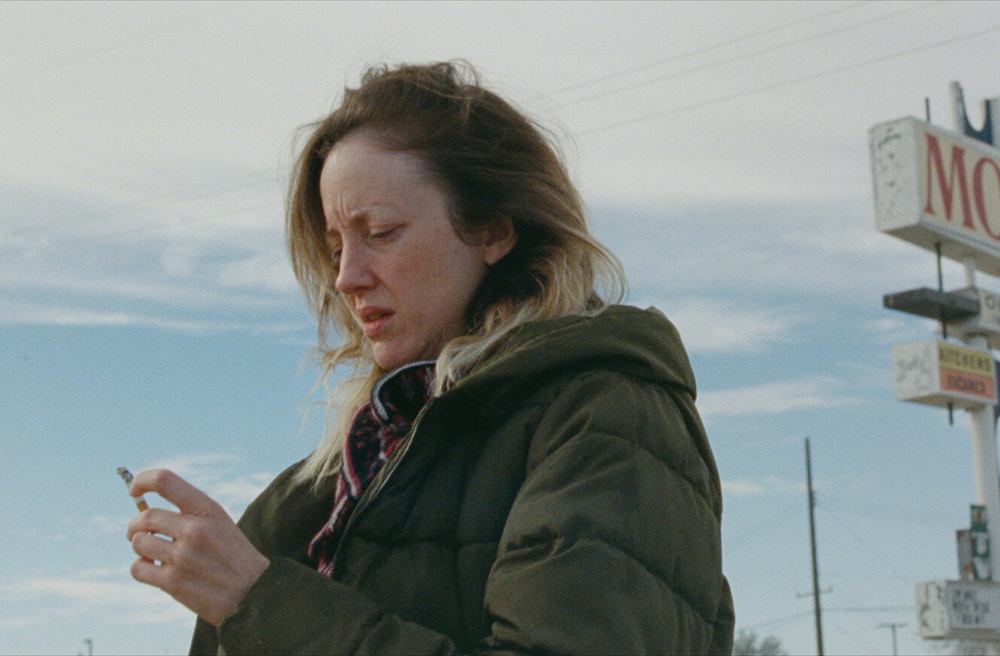Andrea Riseborough, who plays the titular character Leslie “Lee” Rowlands in “To Leslie” (directed by Michael Morris and written by Ryan Binaco), has been in the news lately because of issues the Oscar Board of Governors have with her “unexpected” ‘Best Actress’ nomination and whether it’s deserved. Ignore all that Internet jabbering, because Riseborough is spectacular in the role, breathing life into Leslie and making her a character that’s infuriating in some moments, nauseating in others, but also downright delightful. In other words, she makes Leslie “Lee” Rowlands a realistic human being and alcoholic, not some generic template we’ve seen in hundreds of other films. Not only does Ms. Riseborough deserve an Oscar nomination, she deserves to cartwheel out of the Oscars ceremony with the award firmly in hand.
Leslie “Lee” Rowlands is a woman in her mid-thirties, living in a small Texas town with her teenage son. She’s an alcoholic who loves drinking and partying. When she wins $190,000 in the Texas lottery, she proclaims she’s going to change her life for the better. Six years later, she’s broke, homeless, and has lost touch with her now 20-year-old son. Lugging all her belongings around in a suitcase, she struggles to improve her life, even as the people in the town, including her ex-friend Nancy (Allison Janney) and Nancy’s husband Dutch (Stephen Root), ridicule her and tell her she’ll never change. But a chance meeting with Sweeney (Marc Maron), who runs a local run-down motel with his eccentric friend Royal (Andre Royo) could finally turn her life around.
An Authentic Portrayal of Alcoholism and Struggle
Parts of “To Leslie” reminded me of Agnes Varda’s film “Vagabond,” another film that shows a woman living on the streets, having encounters with people who give her a place to stay either out of pity or a sense of guilt. Where Mona Bergeron of “Vagabond” is a total anarchist and misanthrope who would rather be miserable than be a part of normal society, Leslie desperately wants a normal life. However, she keeps getting in her own way, ultimately finding herself in honky-tonk bars staring at the bottom of a shot glass.
Having known a couple of alcoholics in my life, Ms. Riseborough’s portrayal of Leslie felt authentic and spot-on. Most startling is Leslie’s 180-degree turns from charming and pleasant to a raging hellion, which happens when someone gets in the way of her drinking. Leslie is constantly fidgeting also. There’s never a moment she doesn’t have a drink or a cigarette in her hand, or plays with her hair, scratches her face, or digs in her pockets. Her anxiety is palpable.

Early in the film, Leslie’s son James (Owen Teague) takes her in to live with him and his roommate Darren (Catfish Jean), and there’s a wonderful scene where the three of them are just chilling on the couch, eating Chinese food, laughing and talking. Leslie’s incredibly charming here, telling stories of when James was a little boy and occasionally asking him embarrassing mom questions like who he’s dating. Unfortunately, their happy time together is fleeting, as Leslie ends up on the streets again after making a heart-breakingly selfish choice.
Deep Chemistry and Connection Between Riseborough and Maron
Nancy and her husband Dutch are the type of people who drop 10 bucks in the offering plate in church every Sunday and make sure the whole town knows about it. They’re not rednecks per se, but their wardrobe consists of bandanas, ruddy blue jeans, and t-shirts with dead rock stars emblazoned on them. To them, dressing up fancy is dropping a new Zippo lighter in their pockets. It’s easy to detest them because they seem to derive entertainment from demeaning and scolding Leslie. But each time Nancy screams at Leslie and drudges up her past, there’s a validity to her anger and resentment, and you feel as if Nancy has always pined for those things that Leslie casually threw away for booze.
The heart of the film is Marc Maron’s Sweeney. Sweeney is soft-spoken, with no pretensions and an unwavering sense of humor. Maron does a fantastic job with the character, giving him a spot-on Texas accent and a zen attitude. There’s a deep warmth and connection between he and Leslie. Riseborough and Maron have great chemistry together. I love underdog stories, and the pair reminded me of Rocky and Adrian from “Rocky,” with their roles reversed, since Leslie is trying to “go the distance” and beat her alcoholism as Sweeney gently gives her love and support.
A Great Film from Beginning to End

The cinematography by Larkin Seiple is vivid, capturing the faded beauty of the film’s Texas setting in all its glory, with its weathered buildings and bone-dry landscape dotted with gnarled trees. In the many honky-tonk bars that Leslie wanders into, neon lights and TVs blink and pulsate across glasses overflowing with frothy beer. The bars seem to get darker each time Leslie walks into one.
Don’t let the 159 minute run-time of the film dissuade you from seeing it. “To Leslie” is a fantastic film from beginning to end; and even though it’s still early in the year, I’m confident that it will be in my top 10 favorite films for 2023.


